The Civil War 1850-1880
History
Abraham Lincoln

The 16th president of the U. S. from March 1861 until his assassination in April 1865. Abraham Lincoln. He led the country during the Civil War and worked to end slavery.
Andrew Johnson
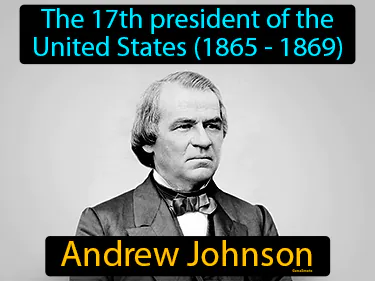
The 17th president of the United States 1865 - 1869. Andrew Johnson. Andrew Johnson was the president who took office after Abraham Lincoln was assassinated.
Appomattox Court House
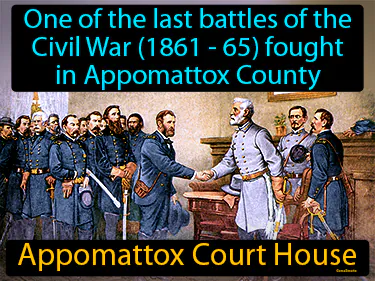
One of the last battles of the Civil War 1861 - 65 fought in Appomattox County. Appomattox Court House. It is the site where General Robert E. Lee surrendered to General Ulysses S. Grant, effectively ending the Civil War.
Battle of Gettysburg
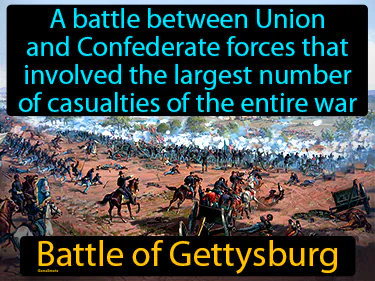
A battle between Union and Confederate forces that involved the largest number of casualties of the entire war. Battle of Gettysburg. It was a pivotal Civil War battle in 1863, often seen as a turning point for the Union in defeating the Confederacy.
carpetbagger
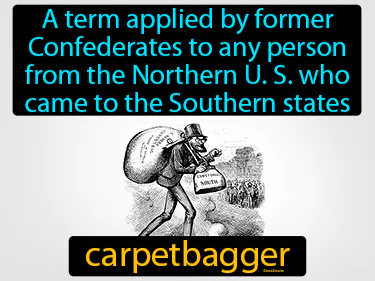
A derogatory term applied by former Confederates to any person from the Northern US, who came to Southern states. Carpetbagger. In history, a carpetbagger was a Northerner who moved to the South after the Civil War, often perceived as exploiting the region during the Reconstruction era.
Confederacy
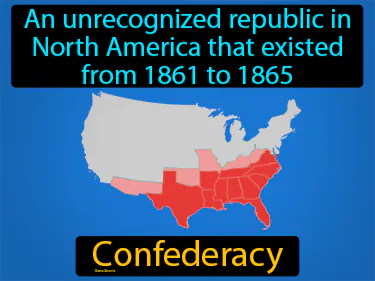
An unrecognized republic in North America that existed from 1861 to 1865. Confederacy. The Confederacy was a group of Southern states that seceded from the United States to maintain slavery, leading to the American Civil War.
conscription
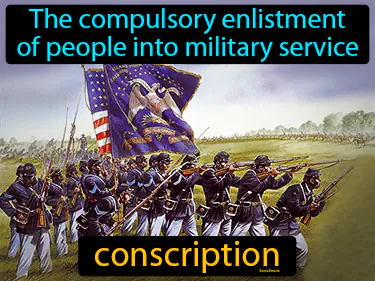
The compulsory enlistment of people into military service. Conscription is when a government requires people to join the military, often during wars.
Dred Scott
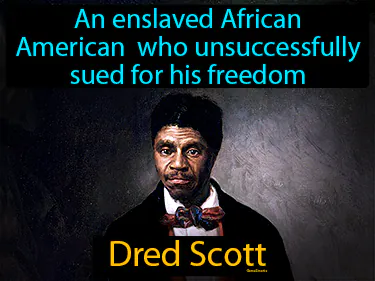
An enslaved African American who unsuccessfully sued for his freedom, Dred Scott. Dred Scott was a man who went to the U.S. Supreme Court to try to gain his freedom, but the court ruled that African Americans could not be citizens.
emancipation
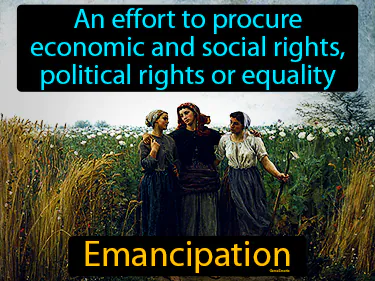
An effort to procure economic and social rights, political rights or equality. Emancipation. Emancipation is the process of being freed from legal, social, or political restrictions, like when slaves were freed in the 19th century.
Emancipation Proclamation
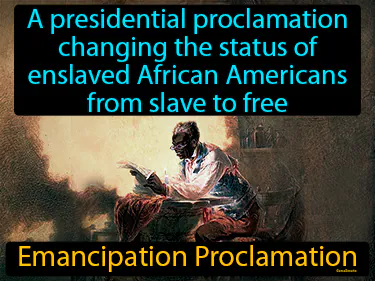
A presidential proclamation changing the status of enslaved African Americans from slave to free. Emancipation Proclamation. It was an order issued by President Abraham Lincoln in 1863 that declared the freedom of all enslaved people in Confederate states.
Fifteenth Amendment
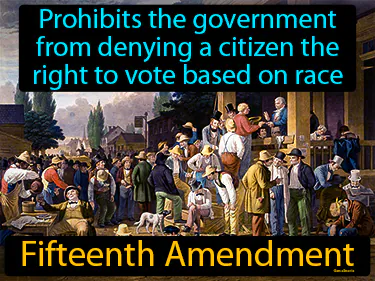
Prohibits the government from denying a citizen the right to vote based on race or color. Fifteenth Amendment. The Fifteenth Amendment ensures that all citizens, regardless of race, have the right to vote.
Fort Sumter
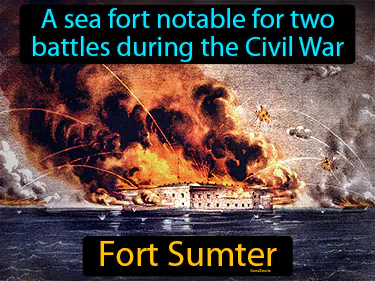
A sea fort notable for two battles during the Civil War. Fort Sumter. It is where the first shots of the American Civil War were fired in 1861.
Fourteenth Amendment
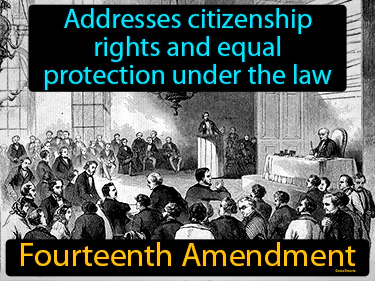
Addresses citizenship rights and equal protection under the law. Fourteenth Amendment. The Fourteenth Amendment, adopted in 1868, ensures that all people born or naturalized in the U.S. are citizens and have equal protection under the law.
Freedmens Bureau
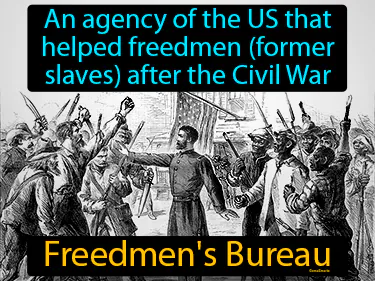
An agency of the US that helped freedmen former slaves after the Civil War. Freedmen's Bureau. It was a government organization established to provide assistance, like education and housing, to former slaves and poor whites in the South after the Civil War.
Gettysburg Address
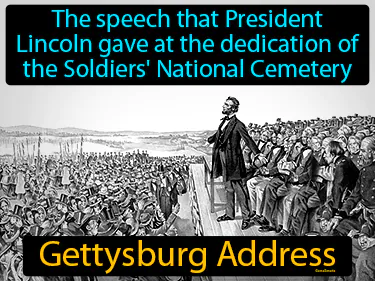
The speech that President Lincoln gave at the dedication of the Soldiers' National Cemetery. Gettysburg Address. The Gettysburg Address is a famous speech by Abraham Lincoln during the American Civil War that emphasized the principles of human equality and the importance of preserving the Union.
Harriet Beecher Stowe
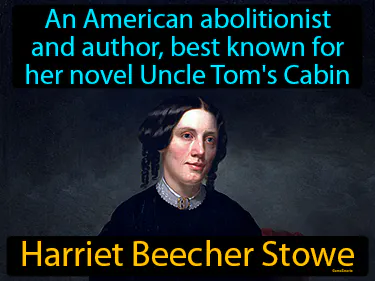
An abolitionist and author best known for her novel, Uncle Tom's Cabin. Harriet Beecher Stowe. She was an influential writer who helped raise awareness about the injustices of slavery in America.
Harriet Tubman
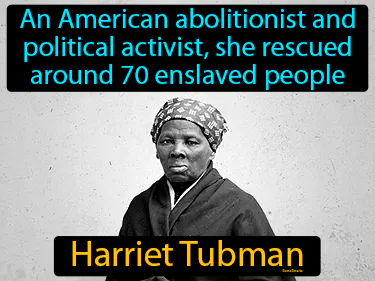
An American abolitionist and political activist, she rescued around 70 enslaved people. Harriet Tubman. She was a key figure in the Underground Railroad, helping enslaved people escape to freedom.
Hiram Revels
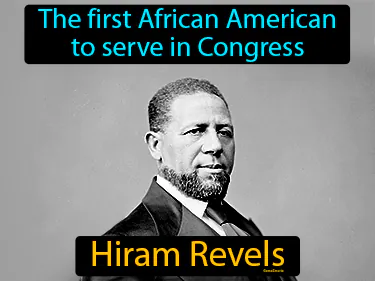
The first African American to serve in Congress, Hiram Revels. He was a U.S. Senator who represented Mississippi during the Reconstruction era.
income tax

A tax imposed on individuals or entities that varies with income or profits. Income tax. Historically, income tax is a financial charge imposed by governments based on earnings to fund public services and infrastructure.
Jefferson Davis
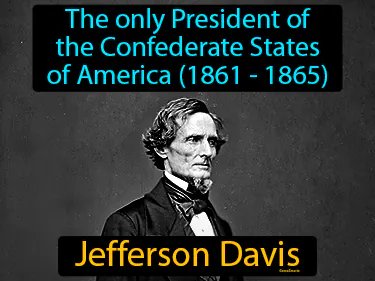
The only President of the Confederate States of America 1861 - 1865 was Jefferson Davis. Jefferson Davis led the southern states during the American Civil War.
John Wilkes Booth
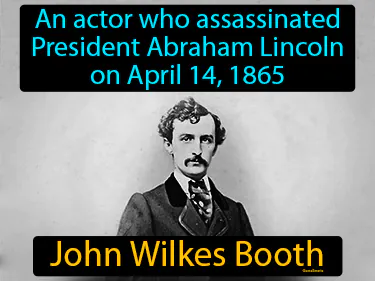
An actor who assassinated President Abraham Lincoln on April 14, 1865. John Wilkes Booth. He was the man who killed Abraham Lincoln, the 16th President of the United States.
Ku Klux Klan
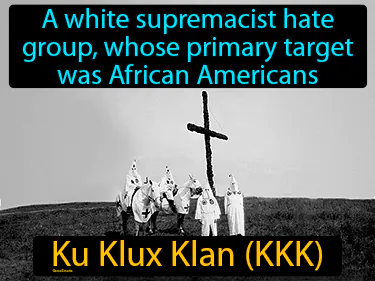
A white supremacist hate group, whose primary target was African Americans. Ku Klux Klan. The Ku Klux Klan is a racist organization in the United States that promotes white supremacy and has a history of violence against minority groups, especially African Americans.
popular sovereignty
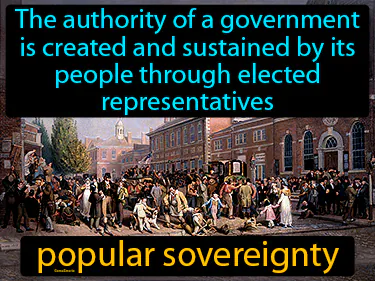
The authority of a government is created and sustained by its people through elected representatives. Popular sovereignty. In History, popular sovereignty means that the power of the government comes from the consent of the governed, allowing people to vote and have a say in their leadership and laws.
Radical Republicans
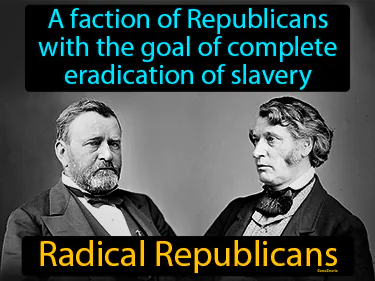
Was a faction of Republicans with the goal of complete and permanent eradication of slavery. Radical Republicans. Radical Republicans were a group during the American Civil War and Reconstruction era that strongly advocated for the abolition of slavery and equal rights for freed slaves.
Reconstruction
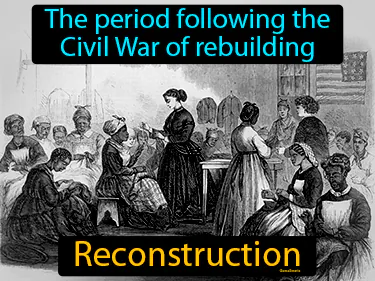
The period following the Civil War of rebuilding. Reconstruction. Reconstruction was the time when the United States worked to rebuild the South and integrate formerly enslaved people into society.
Robert E Lee
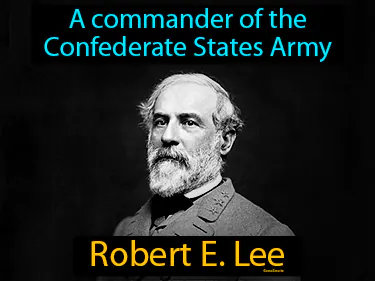
A commander of the Confederate States Army, Robert E Lee. He was a key leader for the Confederacy during the American Civil War.
scalawag
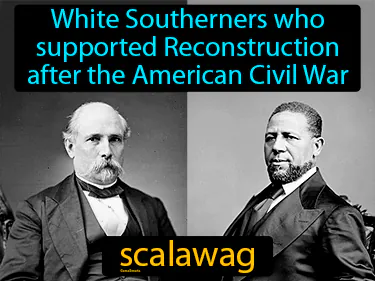
Southerners who supported Reconstruction after the Civil War. scalawag. A scalawag was a derogatory term for Southern whites who supported Reconstruction and the Republican Party after the Civil War.
sharecropping
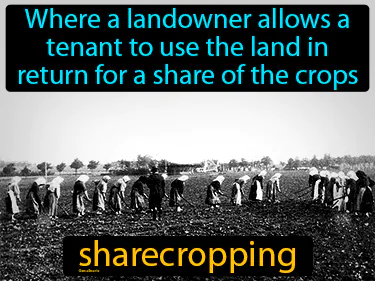
Where a landowner allows a tenant to use the land in return for a share of the crops. Sharecropping. In history, sharecropping was a system where farmers, often freed slaves, worked a portion of a landowner's land in exchange for a share of the harvested crops.
Stephen Douglas
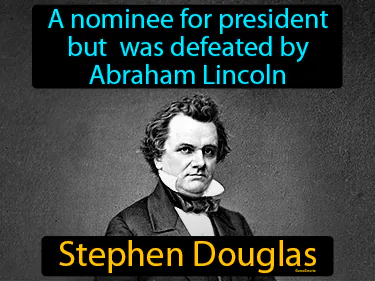
A nominee for president but was defeated by Abraham Lincoln. Stephen Douglas. Stephen Douglas was a U.S. politician known for the Lincoln-Douglas debates and the Kansas-Nebraska Act.
Stonewall Jackson
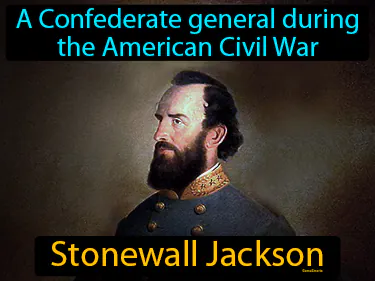
A Confederate general during the American Civil War, Stonewall Jackson. Stonewall Jackson was a skilled military leader known for his tactical prowess in battles.
Thirteenth Amendment
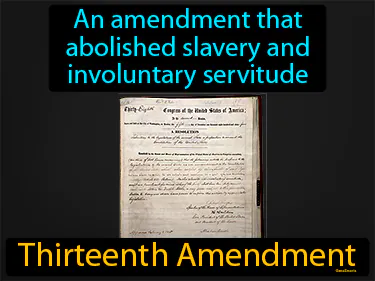
An amendment that abolished slavery and involuntary servitude. Thirteenth Amendment. The Thirteenth Amendment to the United States Constitution officially ended slavery in the U.S. in 1865.
Ulysses S Grant
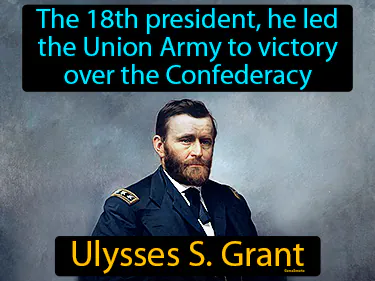
The 18th president, he led the Union Army to victory over the Confederacy. Ulysses S Grant. He was a key figure in American history, serving as a top military leader during the Civil War.
Underground Railroad
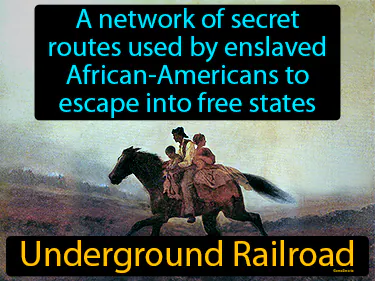
A network of secret routes used by enslaved African-Americans to escape into free states. Underground Railroad. The Underground Railroad was a covert operation that helped enslaved people flee to freedom in the North before the Civil War.
William Seward
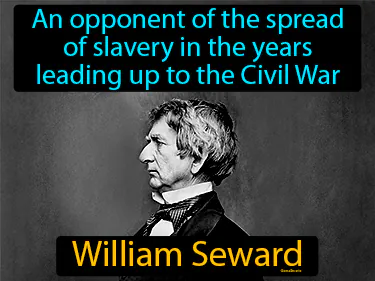
An opponent of the spread of slavery in the years leading up to the Civil War. William Seward. He was a prominent American politician who served as Secretary of State and was a key figure in the anti-slavery movement.
William Tecumseh Sherman
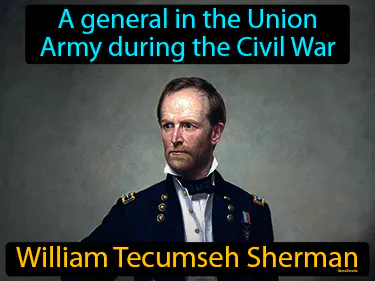
A general in the Union Army during the Civil War. William Tecumseh Sherman. He was a Union general known for his "March to the Sea," which helped defeat the Confederacy by crippling its resources.